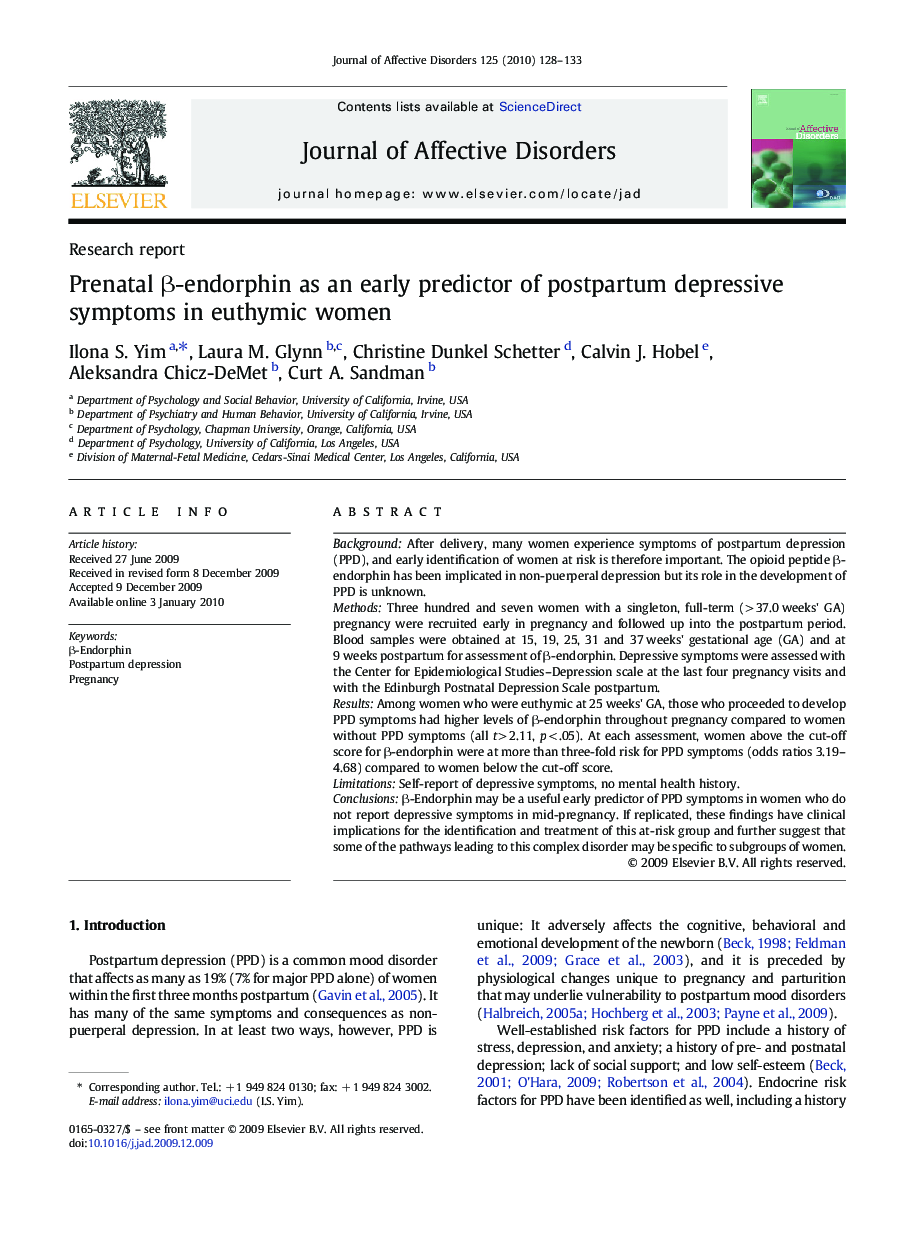| Article ID | Journal | Published Year | Pages | File Type |
|---|---|---|---|---|
| 6236302 | Journal of Affective Disorders | 2010 | 6 Pages |
BackgroundAfter delivery, many women experience symptoms of postpartum depression (PPD), and early identification of women at risk is therefore important. The opioid peptide β-endorphin has been implicated in non-puerperal depression but its role in the development of PPD is unknown.MethodsThree hundred and seven women with a singleton, full-term (> 37.0 weeks' GA) pregnancy were recruited early in pregnancy and followed up into the postpartum period. Blood samples were obtained at 15, 19, 25, 31 and 37 weeks' gestational age (GA) and at 9 weeks postpartum for assessment of β-endorphin. Depressive symptoms were assessed with the Center for Epidemiological Studies-Depression scale at the last four pregnancy visits and with the Edinburgh Postnatal Depression Scale postpartum.ResultsAmong women who were euthymic at 25 weeks' GA, those who proceeded to develop PPD symptoms had higher levels of β-endorphin throughout pregnancy compared to women without PPD symptoms (all t > 2.11, p < .05). At each assessment, women above the cut-off score for β-endorphin were at more than three-fold risk for PPD symptoms (odds ratios 3.19-4.68) compared to women below the cut-off score.LimitationsSelf-report of depressive symptoms, no mental health history.Conclusionsβ-Endorphin may be a useful early predictor of PPD symptoms in women who do not report depressive symptoms in mid-pregnancy. If replicated, these findings have clinical implications for the identification and treatment of this at-risk group and further suggest that some of the pathways leading to this complex disorder may be specific to subgroups of women.
